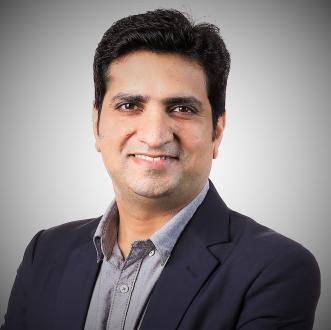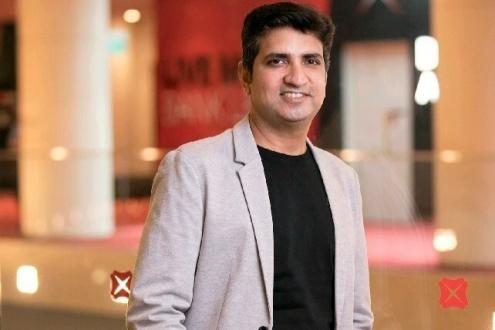Aligning Data, Analytics, AI and ML in Wealth Management: DBS Technology Expert Opines

Jitendra Tekchandani of DBS Bank
Aug 28, 2023
Jitendra Tekchandani, Executive Director, Regional Cognitive Banking and MarTech, at DBS Bank, is working in an institution that is at the cutting edge of digital transformation. Hubbis has interviewed him on several occasions in recent years and learned of his firm belief in the value of technology in elevating the wealth management proposition at DBS. And he is a strong proponent of the hybrid wealth model in which RMs, and advisors are empowered and also freed up to maximise their performance via a combination of dedicated data aligned with the smart use of ML and AI. Jitendra was one of our expert panellists at the Hubbis Digital Dialogue on July 20, which addressed the role of data, analytics, AI and ML in delivering relevance and personalisation at scale.
The mission for the panel of experts on July 20 was first to set the scene and provide the right context, with the assembled wealth management and Fintech/technology experts discussing the nature of the Asian wealth market, defining the evolving business trends, and then identifying the data-centric digital solutions needs for the years ahead.
Zooming in on the broad theme that data is the new oil, the panel debated why data is so important to personalisation and the wealth management journey, and what digital tools, protocols and approaches private banks and wealth management firms could adopt to enhance this vital area.
Technology as the catalyst
“Data accumulation and management is not new, but technology advancement has fast-tracked the use of data, and the raw material has suddenly become much more useful for everyone,” he told guests.
“Data is knowledge, knowledge build the logic, when logic used at the right time it helps our businesses become more intelligent, which is why at DBS we describe it as intelligent banking or cognitive banking.”
Thinking ahead
He explained that cognitive banking traverses all of DBS’ business areas, from wealth management to credit cards, lending and so forth.
“We focus on cognitive banking as one of the pillars to accelerate our business outcomes. We have a data-driven operating model where we identify the outcomes, whether those are financial or non-financial, the latter being customer experience, satisfaction and so forth. Importantly, we believe focusing on the financial outcomes alone is insufficient; we need a more complete approach and that’s why we don’t track the outcomes only but the leading driver metrics.”
A holistic approach
This more holistic approach results in improved and better- decision-making. “You might initially look at customer engagement is high during Chinese New Year and it looks like activity is down, but on the other hand, mining further down, you can often see that RMs are involved at that period in other non-financial areas to improve customer satisfaction,” Jitendra observed. “This more complete picture helps the RMs, the bank and the clients.”
Additionally, DBS works on AI-enabled hindsight and foresight. “In hindsight, we can review and use the data to uncover the stages where performance might be less, and regarding foresight, the data helps us predict where we can better serve and engage with customers effectively.. In short, we can find the root causes and solve the problems.”
Aligning strategies
He added that he was in total agreement with another panellist on the point that any serious institution needs a data strategy aligned with the business strategy. “That represents a win-win for everyone,” he said.
Jitendra then turned to the value of empowering and enhancing the RMs, agreeing with a fellow panellist’s comments that the client-facing banks spend too much time in general on non-productive tasks that nevertheless need to be done.
Making RMs marvellous
“The data and AI can help us to increase the productivity of our RMs, and enhance their expertise,” he reported. “Across the retail customers through our private banking clients, the RMs are simply unable to engage every clients effectively, so historically, they would work very largely with the client they are comfortable, using their judgement to select those out. But we have taken a far more data-centric approach to that process.”
Plotting client coordinates
Accordingly, DBS now has thousands of data points for each and every customer, using that information to pinpoint priority amongst clients for the RMs.
“That way, we solve the ‘who to call’ problem, and then through our Client Connect tool, we deliver them the talking and engagement points to reach out effectively to these MVCs,” he explained. “Finally, the data helps us identify when best to contact each client for maximising the outcome of the engagement. This is an example of how data and AI are elevating DBS’ engagement and client outcomes.”
Empathy required
He elaborated on these points, noting that RMs’ technical skills can also be improved via data and AI by giving them financial insights, customer insights, and behavioural insights, but it is the softer skills that must be aligned as well.
“The knowledge that they used to take years to achieve can now be assimilated more rapidly, but behavioural skills are very important too, and it is vital to know how to approach clients,” he explained. “To help with this, segmentation is really useful, so they understand the wealth continuum from retail to mass affluent to HNW status. You need to be able to understand the expectations of each segment and the diversity of approaches required.”
Segmentation
Finally, he remarked that customer demographics in Asia are changing rapidly, with wealth accumulated ever younger.
“It used to be that millionaires were minted in their 40s and nowadays it is often in their 20s,” he reported. “Moreover, the types of assets they tend to hold are different, with far greater range and diversity, so you then need to delve further to arrive at micro-segmentation. In all these areas, data and AI are playing a major role in delivering hyper-personalisation at scale and without incremental cost.”
Jitendra and of course, DBS are very much at the cutting edge of leveraging data to connect the dots on client preferences, behaviour and expectations, to come up with meaningful and relevant insights for the RMs to deliver to them and to stimulate a far more personalised offering. And that, as he explained, is central to better revenues and better client satisfaction.

Executive Director, Customer Science & Segment, Wealth Management at DBS Bank

More from Jitendra Tekchandani, DBS Bank
DBS Technology & Transformation Expert on the Holistic Approach to Digitisation in Wealth Management
Latest Articles






